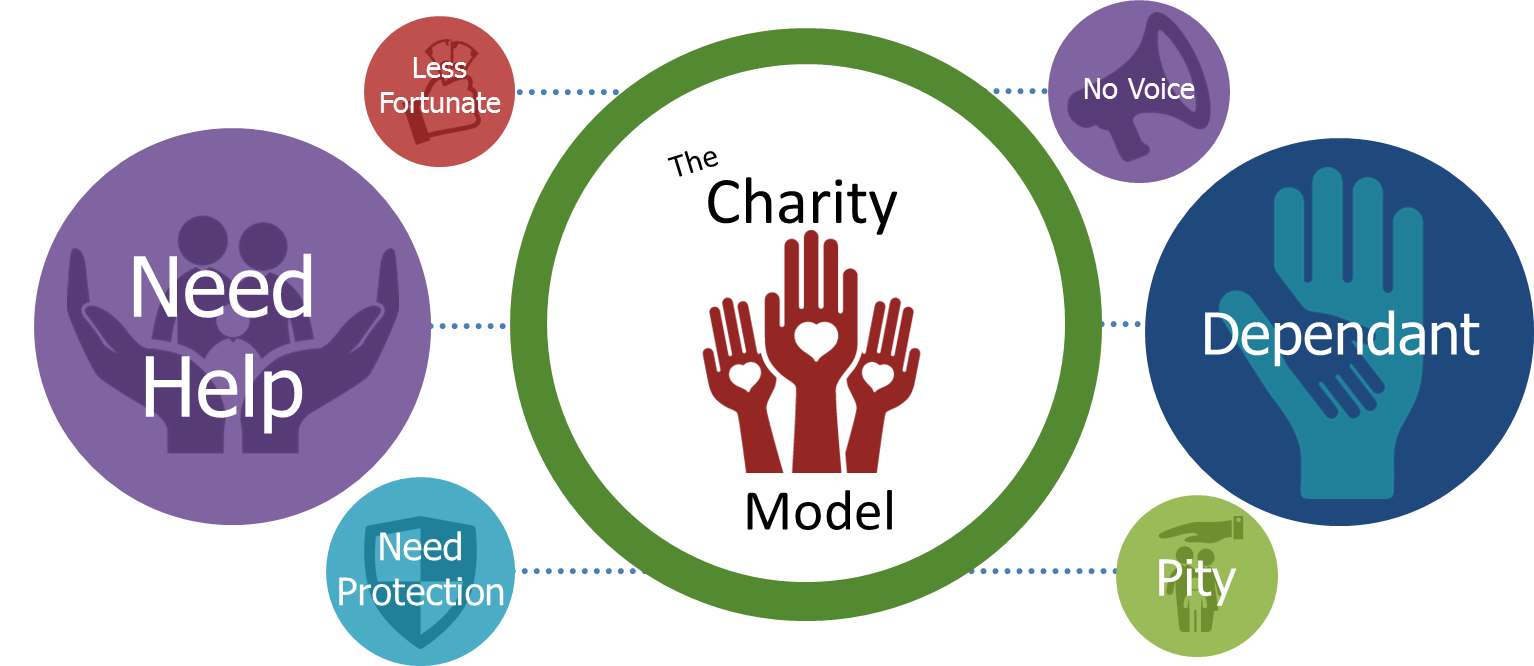The Charity Model
Where the medical model tends to look at what is “wrong” with the person the Charity model takes a different approach and looks at disabled people as those in need of help.
Traditionally the charity model views disabled people as an object of pity. In this model disabled people are in need of protection, need looking after and need decisions making on their behalf and so charities are formed by non-disabled people to take care of these needs.
This helplessness may be emphasised by charities in the language and messages they use in convincing people to donate money to put this help in place.
Despite offering what may be brilliant services this model risks excluding autonomy, independence and in extreme cases the rights of disabled people. It is important that where charities exist to support disabled people they focus on a more inclusive model of disability.
